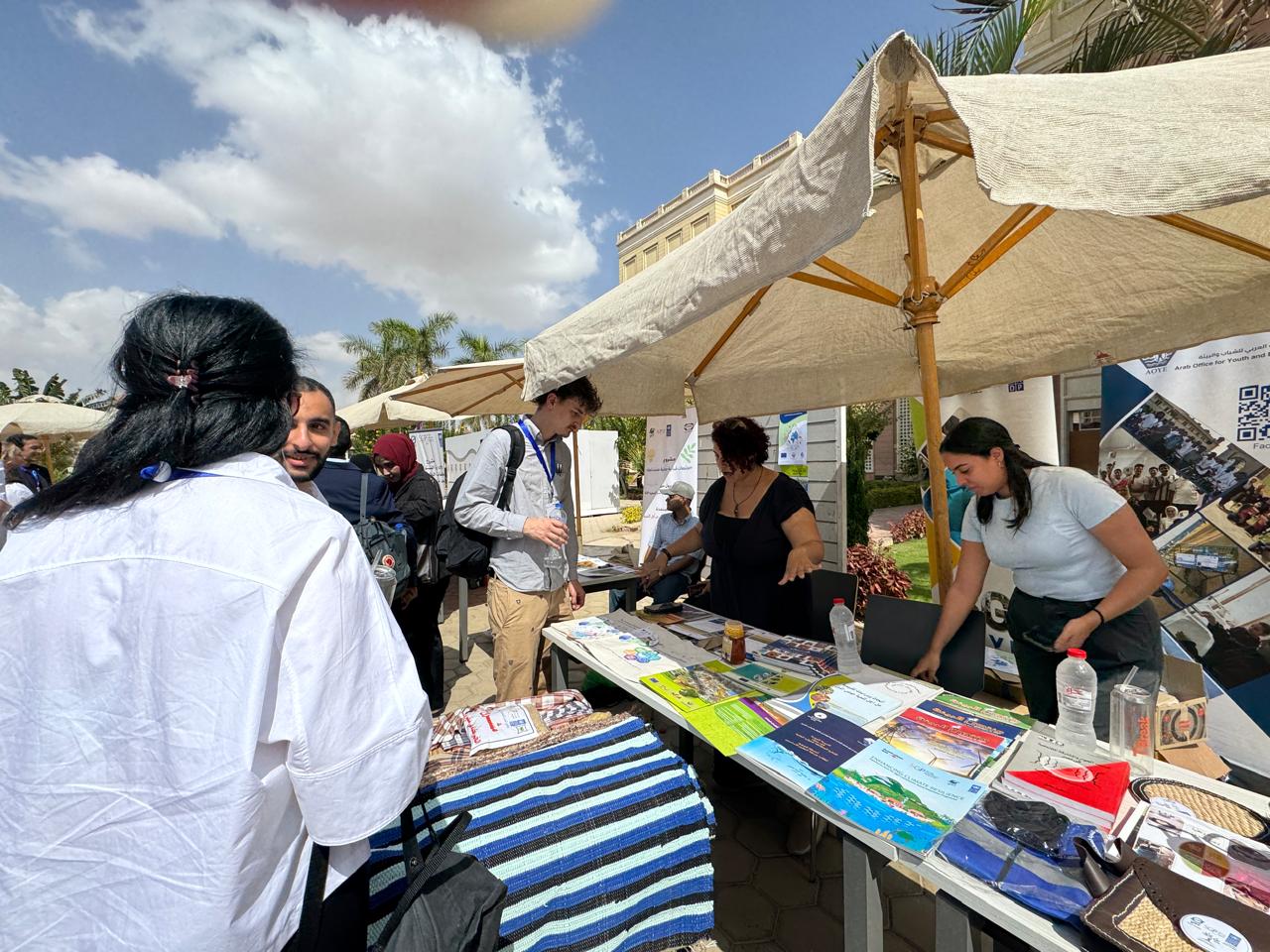Outstanding Participation of the Small Grants Programme in the “COP-30 Simulation” at the British University in Egypt
The British University in Egypt (BUE) hosted an exceptional event, a simulation of the United Nations Climate Change Conference “COP-30”, with the participation of students representing 47 countries and 91 universities from around the world, alongside a distinguished presence of academics and professionals interested in environmental and sustainable development issues.
This simulation represented an advanced model of interaction between academic knowledge and practical experience. It offered students a unique opportunity to simulate international climate negotiation sessions and gain deeper insight into the challenges faced by countries striving to balance economic growth with environmental protection.
As part of the activities accompanying the “COP-30 Simulation,” an environmental exhibition was organized, featuring a remarkable participation of several civil society projects funded by the Global Environment Facility’s Small Grants Programme (GEF/SGP), currently in its seventh operational phase in Egypt.
The Arab Office for Youth and Environment (AOYE), which hosts the Small Grants Programme in Egypt, took part in the exhibition by presenting a range of its ongoing projects and initiatives across different environmental fields. The AOYE booth attracted considerable attention from visitors and students, offering them a chance to learn more about the organization’s efforts, in collaboration with national and international partners, to enhance youth and civil society engagement in climate action.
Among the participating initiatives was the project “Sustainable Management of Plastic Waste and Climate Change Mitigation,” implemented by Al-Rowad Foundation for Projects and Development. Representatives of the foundation gave an awareness presentation on the dangers of single-use plastic bags and advocated for the adoption of eco-friendly reusable alternatives, such as fabric bags. The initiative was met with great enthusiasm from students, many of whom expressed readiness to promote sustainability practices and reduce plastic use within their university community.
Another participating initiative was the project “Sustainable Local Youth Communities,” implemented by the Forum for Dialogue and Participation for Development. The project team showcased posters introducing its components, objectives, and activities, as well as creative outputs from children’s workshops that included handmade crafts made from recycled cardboard and plastic. These activities highlighted the project’s awareness-raising role in promoting community participation and fostering environmental consciousness among children and youth alike.
The participation of GEF/SGP projects in the COP-30 Simulation comes within the framework of the programme’s efforts to promote environmental awareness among youth and to integrate climate and sustainability issues into educational and cultural activities. Such events help strengthen the connection between university students and civil society organizations, opening broader horizons for youth engagement in climate and development efforts.
This remarkable presence underscores that SGP’s seventh phase goes beyond implementing field projects, it extends to spreading a culture of environmental participation and supporting youth-led initiatives that contribute to building a more aware and sustainable society, paving the way for stronger engagement in national and global climate action.
According to the British University in Egypt, the COP-30 Simulation represents an important academic step toward linking theoretical knowledge with practical application. Students experienced, for the first time, a full simulation of the Conference of the Parties (COP), representing different countries and voicing their positions to the world, gaining firsthand understanding of what it truly means to negotiate for the future of our planet.
The simulation also allowed students to experience the dynamics of global negotiations, deepening their understanding of the complexities nations face in addressing the climate challenge. It helped build a generation capable of critical thinking and active participation in shaping future environmental policies.

